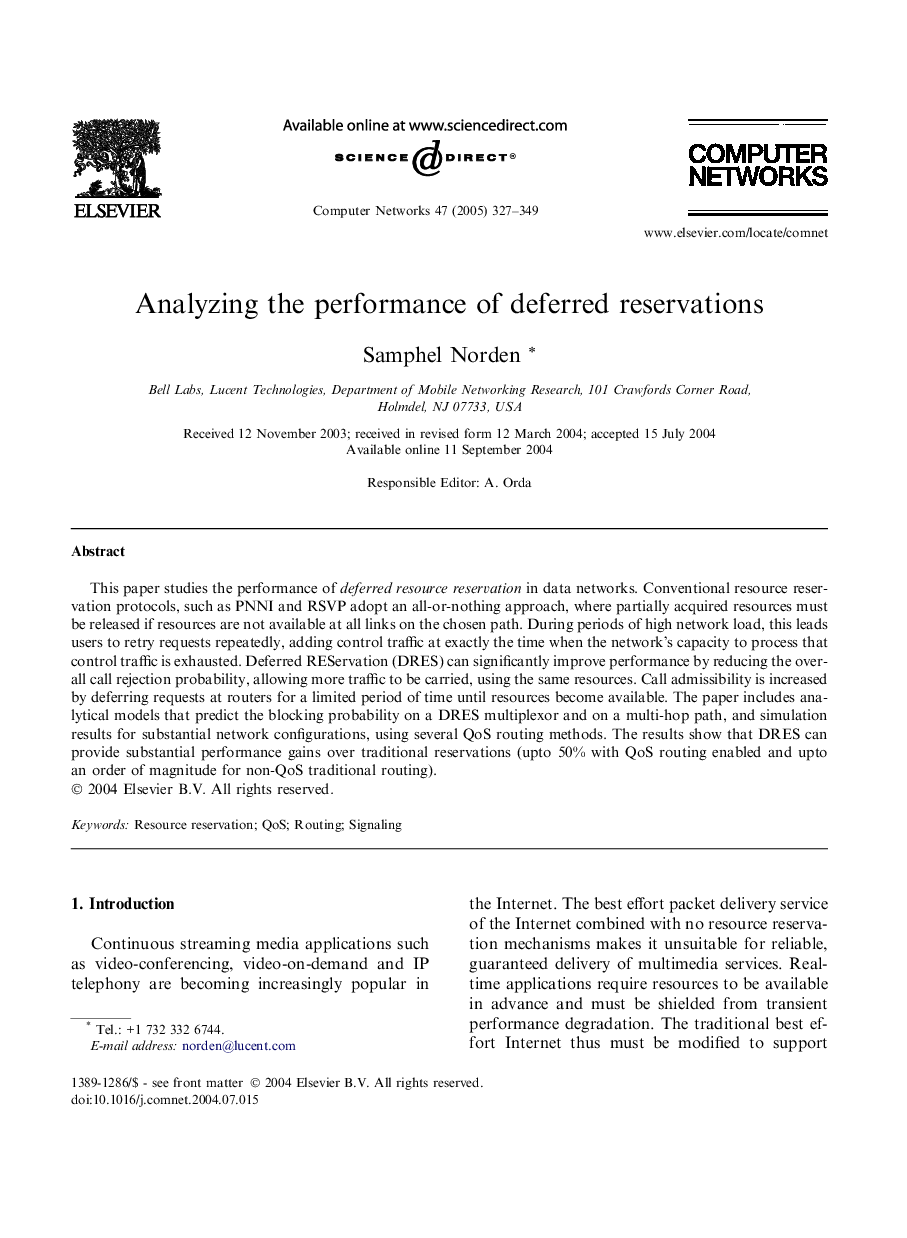| Article ID | Journal | Published Year | Pages | File Type |
|---|---|---|---|---|
| 10339603 | Computer Networks | 2005 | 23 Pages |
Abstract
This paper studies the performance of deferred resource reservation in data networks. Conventional resource reservation protocols, such as PNNI and RSVP adopt an all-or-nothing approach, where partially acquired resources must be released if resources are not available at all links on the chosen path. During periods of high network load, this leads users to retry requests repeatedly, adding control traffic at exactly the time when the network's capacity to process that control traffic is exhausted. Deferred REServation (DRES) can significantly improve performance by reducing the overall call rejection probability, allowing more traffic to be carried, using the same resources. Call admissibility is increased by deferring requests at routers for a limited period of time until resources become available. The paper includes analytical models that predict the blocking probability on a DRES multiplexor and on a multi-hop path, and simulation results for substantial network configurations, using several QoS routing methods. The results show that DRES can provide substantial performance gains over traditional reservations (upto 50% with QoS routing enabled and upto an order of magnitude for non-QoS traditional routing).
Related Topics
Physical Sciences and Engineering
Computer Science
Computer Networks and Communications
Authors
Samphel Norden,
